#Empress sisi
Explore tagged Tumblr posts
Text




Elisabeth of Austria by Franz Xaver Winterhalter / Romy Schneider as Elisabeth of Austria
402 notes
·
View notes
Text



Romy Schneider, Sissi III (1957)
55 notes
·
View notes
Text






Dogs of Royal ladies
Empress sisi-Shadow
Queen Victoria-Dash
Tatiana nikolaevna-Ortipo
Anastasia nikolaevna-Schvibzik
Queen Alexandra -Alex
Maria Feodorovna-Beauty
#empress sisi#Sisi#queen victoria#anastasia nikolaevna#tatiana nikolaevna#Royal dogs#queen alexandra
59 notes
·
View notes
Text
youtube
'Sisi' was a terrible empress. Her romanticization needs to STOP.
In more recent decades, Elisabeth has received a growing attention in pop culture: there are several series, films and even a musical paying tribute to her legend. Her beauty is admired, her trials and tribulations are pitied, her struggle to escape the chafing constraints of royal life is celebrated. There's a whiff of feminism surrounding her lately - a strong, intelligent woman, metaphorically, and if we take the film Corsage, even literally flipping off the patriarchy. She's galloping through forests barefoot, she's facing off her tyrannical mother in law, she's fighting for her freedom, for control over her own life. German writer Karen Duve goes as far as to call Elisabeth "an undiscovered feminist icon."
But... was she? One of her ladies in waiting once said that Elisabeth will "live on in legend, not in history". And right she was. You see, Elisabeth has triumphed. When I look around, it seems as if we see her exactly as she would have wanted us to. A tragic heroine, a beautiful apparition, a nymph who somehow got trapped in the mortal realm, to her immense suffering. And for a modern woman, there is much to empathize with in Elisabeth: her sublime sensitivity, her iron self-discipline, her headstrong character, her inborn thirst for freedom. But upon lifting the starry veil of this ethereal fairy-tale queen, one will find the face of a much more complex, flawed and ultimately human woman. Self-obsessed and narcissistic, monstrously selfish and possessive, cruelly indifferent to her empire (with one all-consuming exception), incessantly self-victimizing and deeply, deeply unhappy - overwhelmingly through her own fault.
#empress sisi#elisabeth of austria#empress elisabeth of austria#elisabeth in bavaria#elisabeth of austria hungary#duchess elisabeth von wittelsbach#the empress#princess sisi#documentary#sissi trilogy#kaiserin elisabeth#kaiserin sisi#franz joseph of austria#kaiser franz joseph#franz joseph#mary vetsera#rudolf of austria#marie festetics#marie valerie#crown prince rudolf#gisela of austria#Youtube
71 notes
·
View notes
Text

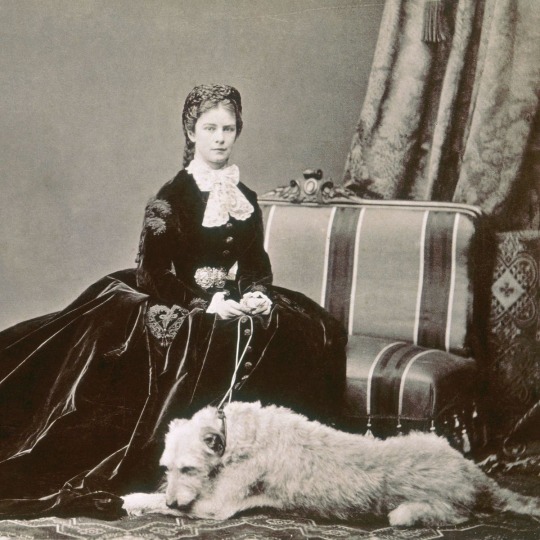
Elisabeth with her Irish Wolfhound, Shadow.
The Irish Wolfhound was one of her favourite dog breeds. She named her first Irish Wolfhound puppy "Shadow", and the dog was aptly named as it followed her from room to room. This was the first dog to carry that name, and at least two others "inherited" it. - https://www.authorapiperburgi.com
#duchess elisabeth of bavaria#elisabeth of austria#empress elisabeth of austria#empress sisi#kaiserin sisi#royalty#sisi of austria#dog#doglover#cute dog#old photographs
102 notes
·
View notes
Text

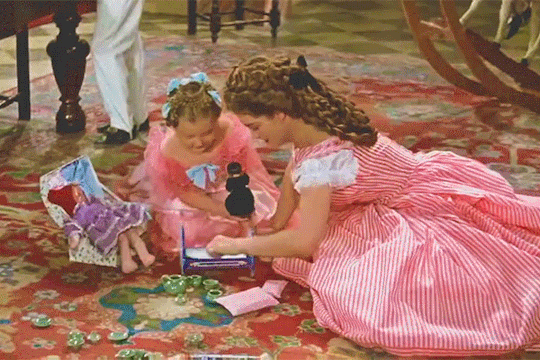


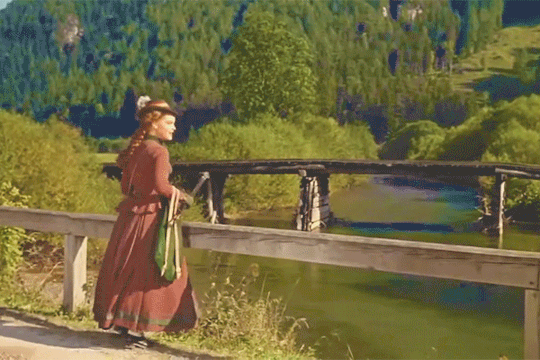

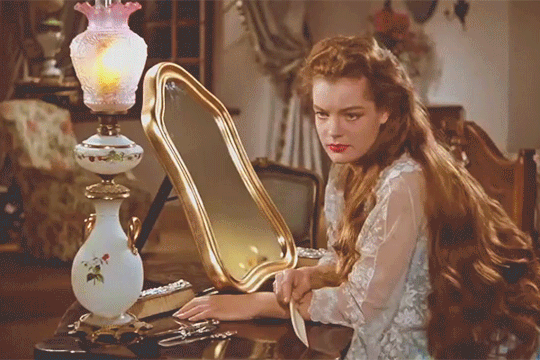
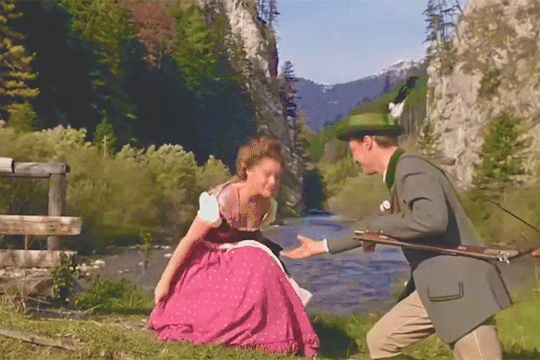


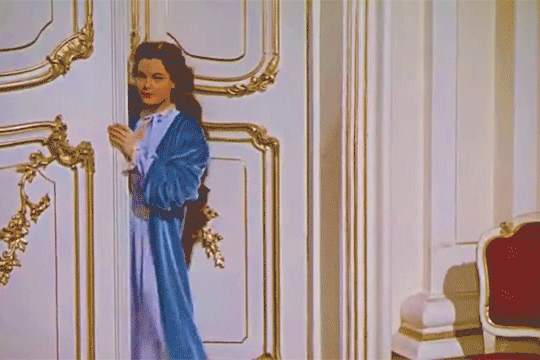
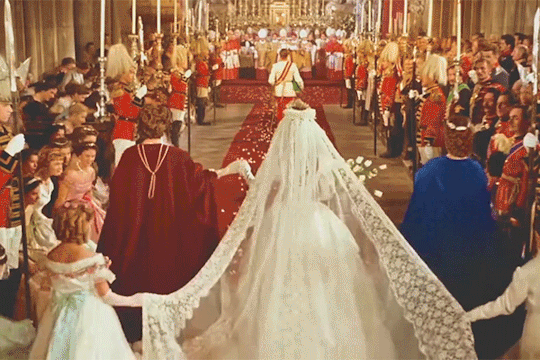
Sissi {1955}
#sissi#sissi trilogy#empress elisabeth of austria#sisi#empress sisi#princess sissi#historical gifs#history gifs#romy schneider
124 notes
·
View notes
Text



Cursed historical Valentines be upon ye again
#The Philip one is my masterpiece i hate him iykyk#my art#history art#valentine's day#valentines meme#valentines card#valentines day#empress elisabeth of austria#elisabeth of austria#empress sissi#empress sisi#charles ii of spain#carlos ii#Charles ii#philip ii#philip ii of spain#Also idc if FJ really have Sissi STDs or not my book says he did. If yours doesn't it's your historian against mine#More importantly this is a franz joseph hate account if u wanna drag me for it just keep that bland asshole to yourself & scroll on 💅#Philip transcript: will. I WILL. You have no choice actually#i mean maybe you do? But if it were up to me i mean hey do you wanna get a coffee i love coffee today i ordered a
69 notes
·
View notes
Text
things that have happened this week in austrian history:
archduchess marie valerie is born
luigi lucheni is born
these occur on the same day actually
elisabeth and franz josef marry
#elisabeth das musical#empress elisabeth of austria#kaiserin elisabeth#empress sisi#european musicals#history#austria
38 notes
·
View notes
Text

VERY rare photo of Empress Elisabeth “Sisi” of Austria smiling at the camera, 1870s (?) 🤍✨🥹
Source: Pinterest
#awww <3#empress elisabeth of austria#elisabeth of austria#empress sisi#sisi of austria#Austrian royal family#rare#rare photos#house of wittelsbach#duchess Elisabeth of Bavaria#1870s
128 notes
·
View notes
Text


went to the sisi museum in vienna today
19 notes
·
View notes
Text
There is no clear evidence that Franz Joseph cheated on his wife [in 1860]. However, as contemporaries repeatedly made allusions to it and this slight represented a major break in the couple's life together, an affair on the part of the emperor cannot be ruled out. What can be ruled out, however, is that he infected Elisabeth with a venereal disease. The prescription books, which record all the illnesses of the members of the imperial family, including venereal diseases ranging from gonorrhea to syphilis, do not contain any treatments for Franz Joseph. Elisabeth was also only given medication for digestive complaints, anemia and coughs. While Emperor Franz Joseph was prescribed cocaine for coughs for decades, Elisabeth's cough powder contained cannabis, which had a much weaker effect on coughs and was primarily used in the 19th century to treat loss of appetite and nervous disorders, but also, as in the case of Queen Victoria of England, for menstrual cramps.
– Katrin Unterreiner (2023). Sisi: Das geheime Leben der Kaiserin (DeepL translation)
#franz josef i of austria#empress sisi#elisabeth of austria#19th century#history#quotes#historian: katrin unterreiner#*elisabethofaustria#ok i've decided that every time i see someone repeating a myth about sisi#i'll post a quote refuting the myth
11 notes
·
View notes
Text
mystery of Empress Sisi's wedding dress⚘️







#empress sissi#sisi#Kaiserin#austria#Empress of austria#empress elisabeth of austria#empress sisi#Österreicherin#Elisabeth in bavaria#Kaiserin von Österreicherin
27 notes
·
View notes
Text


#sissi#sisi#sisi (2021)#empress sisi#baviera#germania#germany#austria#vienna#franz joseph#dominique devenport#love#couple#perioddramaedit#perioddramasource#periodedit
23 notes
·
View notes
Text

Mommy-cindy is here for you baby ❤️
#abdluk#sis#ab/dl blog#ab/dl diaper#ab/dl lifestyle#ab/dl#ab/dl babygirl#feminine sissy#ab dl diaper#ab/dl community#abdlbabygirl#abdlgermany#sisifeminization#sissi femboi#sisi slave#submisive sissy#empress sisi#sisifos#sisi (2021)#beta faggot#beta sissy#pantylover#panty sissy#panthers lb#satin pantys
9 notes
·
View notes
Text

Posthume portrait of Elisabeth by J. von Koppay. (1890s)
#duchess elisabeth of bavaria#elisabeth of austria#empress elisabeth of austria#empress sisi#sisi of austria#kaiserin sisi#old art#art#19th century#19th century fashion#1890s#1890s dress#circa 1890#1890s fashion#1890s art
134 notes
·
View notes
